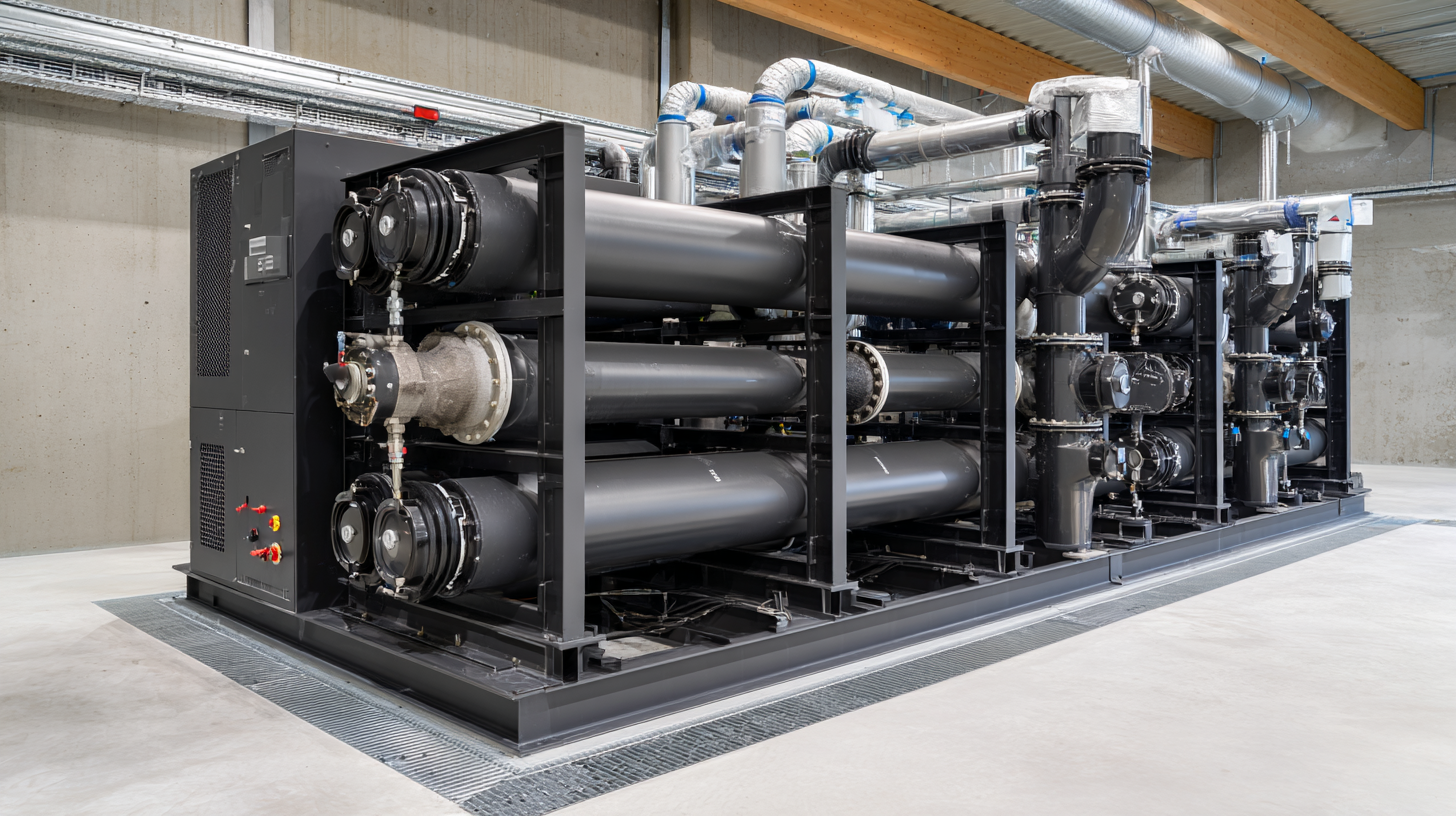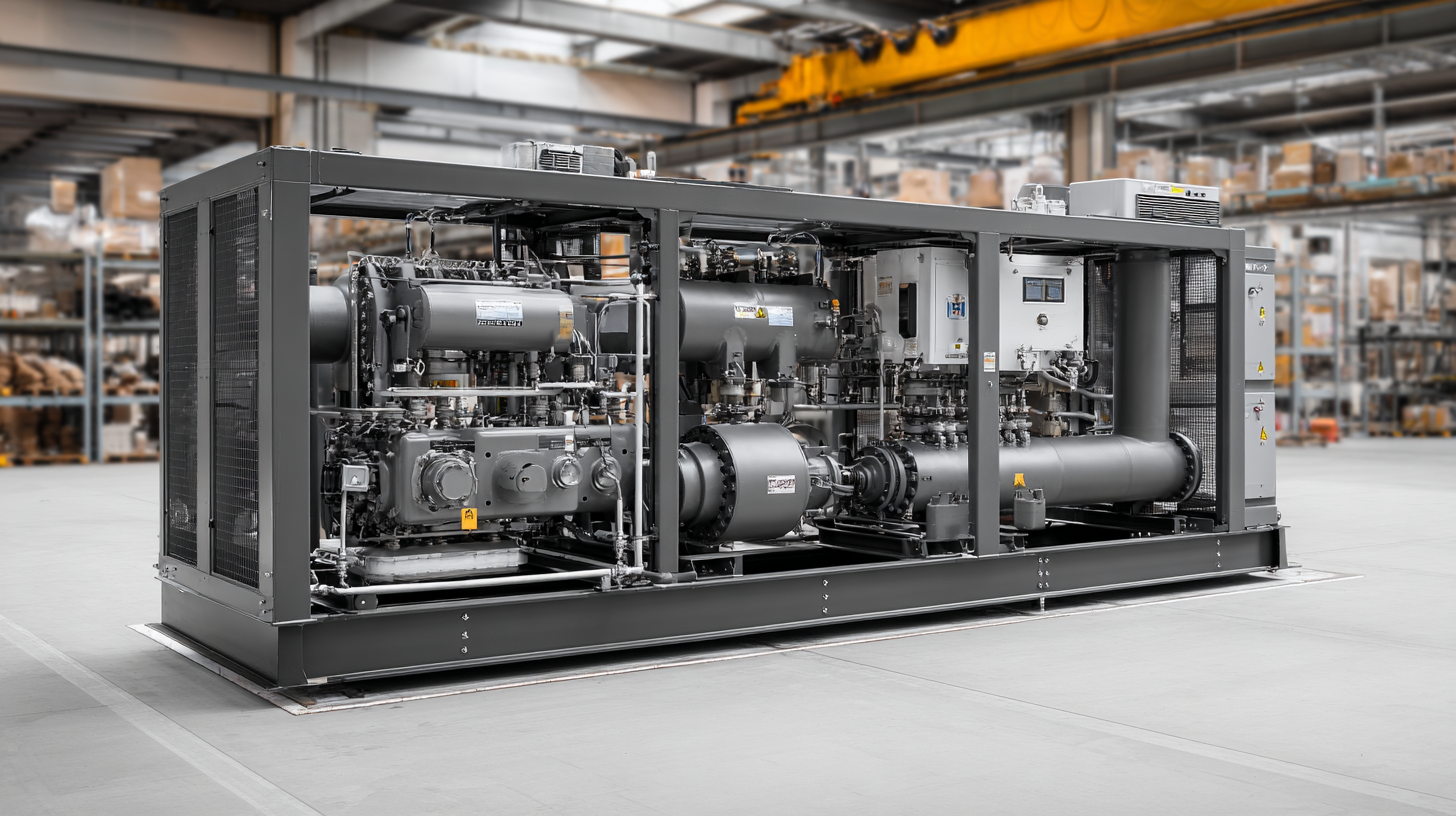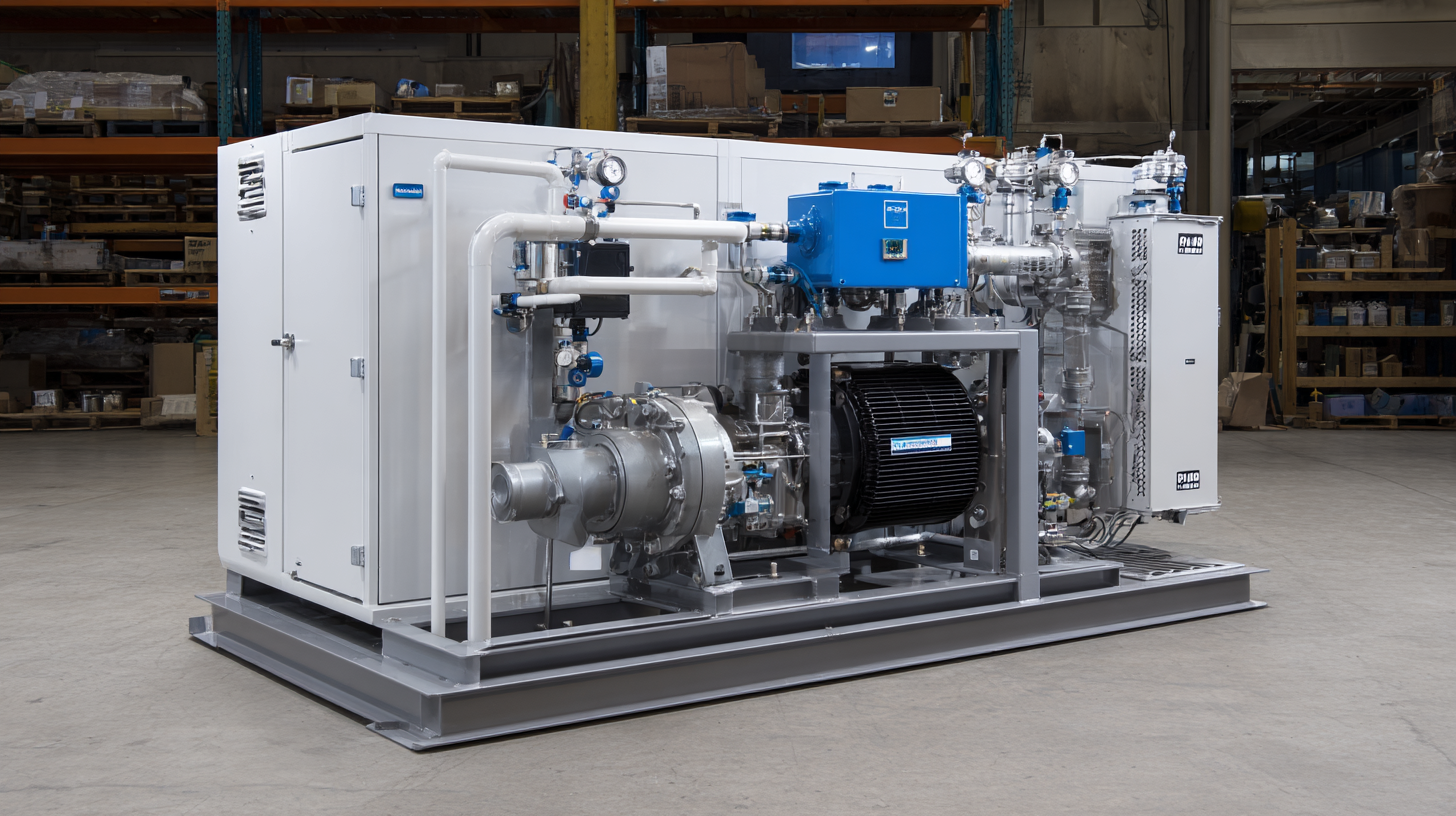
In today's competitive industrial landscape, maximizing efficiency in compressor systems is essential for both productivity and cost-effectiveness. One innovative solution that has emerged to address these challenges is the application of advanced filter dryer systems. Specifically designed to enhance performance, a Filter Dryer For Compressor not only removes moisture but also eliminates contaminants that can lead to inefficiencies and equipment degradation.

This article presents a comprehensive overview of the latest technological advancements in filter dryers, offering valuable tips and insights on how to integrate these solutions into your operations. By embracing these innovative systems, businesses can improve the reliability and longevity of their compressor systems, ultimately driving greater operational efficiency and significant cost savings.
In modern compressor systems, filter dryers play a critical role in enhancing efficiency by removing moisture and contaminants from compressed air. According to a report by the Compressed Air and Gas Institute (CAGI), approximately 80% of compressor failures are directly linked to moisture and dirt, which significantly decreases equipment lifespan and operational effectiveness. Utilizing advanced filter dryer solutions can thus not only prolong the life of compressors but also ensure optimal performance and energy savings.
One effective strategy for maximizing filter dryer efficiency is maintaining regular maintenance checks and filter replacements. Studies indicate that a 1% increase in moisture content in compressed air can lead to a 3% drop in compressor efficiency. By installing high-quality filter dryers, users can achieve a more stable moisture level in their systems, subsequently reducing energy costs and unnecessary downtime.
**Tips:** Regularly monitor the pressure drop across your filter dryer to identify when replacements are due. Consider investing in moisture separators alongside filter dryers for enhanced protection against water accumulation. Additionally, training your team on the importance of filter maintenance can lead to increased awareness and proactive management of compressor systems.
| Filter Dryer Type | Efficiency Improvement (%) | Typical Applications | Maintenance Frequency | Cost Range ($) |
|---|---|---|---|---|
| Refrigerated Filter Dryer | 20-30 | HVAC, Refrigeration | Monthly | 150 - 300 |
| Desiccant Filter Dryer | 15-25 | Compressed Air, Pharmaceutical | Quarterly | 200 - 400 |
| Membrane Filter Dryer | 10-20 | Industrial Gas, Petrochemical | Biannual | 500 - 1000 |
| Cyclone Separator | 5-15 | Dust Collection, Mining | Annually | 100 - 250 |
| Coalescing Filter Dryer | 25-35 | Natural Gas, Oil Refineries | Monthly | 300 - 600 |
In the quest for enhanced performance in compressor systems, innovative filter dryer technologies have emerged as a vital solution for maximizing efficiency. Recent industry reports have indicated that the implementation of advanced filter dryers can reduce moisture content in compressed air by up to 99.9%, leading to significant improvements in product quality and system longevity. These high-performance devices not only prevent corrosion in downstream equipment but also enhance energy efficiency, with some studies showing energy savings of as much as 20% when adopting modern filtration solutions.

Furthermore, the transition to innovative filter dryer systems has been driven by stringent regulations and growing environmental concerns. According to a report from the International Compressors Association, the global market for dryer technology is projected to reach $1.5 billion by 2025, fueled by demand for sustainable practices in industrial applications. Companies that invest in state-of-the-art filter dryer solutions not only achieve regulatory compliance but also enjoy a competitive edge through improved operational efficiency and reduced maintenance costs. As the industry continues to evolve, evaluating and adopting these cutting-edge technologies will be crucial for achieving optimal performance in compressor systems.
The efficiency of compressor systems can be significantly enhanced by employing innovative filter dryer solutions. These systems not only ensure optimal performance but also play a critical role in reducing energy consumption. Key metrics for measuring the impact of filter dryers include energy savings, operational uptime, and overall system reliability. By closely monitoring these metrics, businesses can determine the effectiveness of their filter dryers and make informed decisions that contribute to lower operational costs.
Tips for optimizing energy consumption with filter dryers include regularly inspecting and maintaining the equipment. A well-maintained filter dryer maximizes filtration efficiency and minimizes energy loss caused by clogs or malfunctions. Moreover, investing in high-efficiency filter dryers can yield substantial long-term savings and enhance system performance. Another consideration is the proper sizing of filter dryers; using equipment suited to the specific demands of the compressor system can prevent unnecessary energy drain and ensure the longevity of the components.
By focusing on these key metrics and implementing the right strategies, organizations can leverage the potential of filter dryers to create more energy-efficient compressor systems. This proactive approach not only supports sustainability initiatives but also drives significant cost savings in the long run.
Innovative filter dryer solutions are rapidly transforming compressor systems, enhancing their efficiency and performance. Recent case studies illustrate how these advanced technologies have been successfully implemented in various industrial settings. For instance, a manufacturing plant facing frequent downtime due to moisture buildup in its compressor system opted for a state-of-the-art filter dryer solution. This innovation not only reduced maintenance costs significantly but also improved the overall productivity of the operation by ensuring that the system runs smoothly without interruptions.
Another compelling example comes from the food processing industry, where a facility implemented an advanced filter dryer to eliminate contaminants in compressed air. The installation resulted in a remarkable increase in product quality and safety, meeting stringent industry regulations. Additionally, the new system proved to be energy-efficient, reducing operational costs while maintaining consistent output levels. These case studies demonstrate that adopting innovative filter dryer solutions can lead to substantial improvements in both efficiency and reliability across diverse applications.
Innovative filter dryer designs are revolutionizing compressor systems, enabling them to achieve higher efficiency and reliability. As industries continue to push for optimal performance, manufacturers are focusing on advanced filtration technologies that not only enhance the compression process but also minimize energy consumption. The integration of smart sensors and automation into filter dryers allows for real-time monitoring and adjustments, ensuring that the system operates within optimal parameters at all times. This foresight contributes to longer equipment lifespan and lower maintenance costs.
Future trends indicate a shift towards more sustainable materials and eco-friendly designs in filter dryer solutions. Engineers are exploring biodegradable and recyclable materials, significantly reducing the environmental impact of compressor systems. Additionally, the implementation of nanotechnology in filter media enhances filtration efficiency while minimizing pressure drops, leading to more compact and lightweight designs. As the need for energy-efficient solutions becomes paramount, these innovative approaches will pave the way for the next generation of compressor systems that adhere to both economic and ecological standards.




